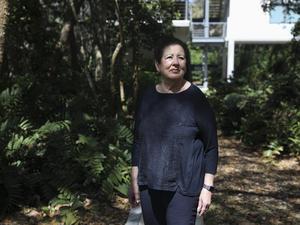
Dean Miller and Matt Gillin's careers have both spanned two "bubble bursts," Gillin as an entrepreneur and Miller as an investor. Both agree that the current drop-off in tech funding is not as catastrophic as those instances, but they recognize that many entrepreneurs are struggling to raise money right now.
Nationally, exits were down 50% from historical norms in the third quarter of this year, according to Pitchbook, and the value of venture capital late-stage startup deals hit its lowest point in 11 quarters at $24.9 billion, down 48% from the second quarter. Locally, the plunge was even more pronounced. The third-quarter fundraising total of $619.6 million was a 77% slide from 2Q and 71% less than the $2.14 billion raised during the third quarter of 2021.
Miller has spent over 30 years in investing, was the managing director of venture capital firm Novitas Capital for more than two decades and is now the CEO of the Philadelphia Alliance for Capital and Technologies. There is a market slowdown, Miller said, but funding hasn't dried up.
"Capital may be slowing in deployment, but it’s still there," he said. "It might be being invested at a slower pace, but if investors are investing at a slower pace, entrepreneurs should be growing at a slower pace."

Gillin founded C/Base in 1995, then Ecount in 1997, which he ultimately sold to Citigroup in 2007. He then went on to found Radnor-based Relay Network in 2010.
He said it's still possible to grow in a down market, but that entrepreneurs should "conserve cash as if you're not going to get it." He said that could mean spending less on things like marketing and events, but also trying to get more out of the people already on board and compensating them for their production when possible.
One adjustment startups may have to make to secure funding in a down market is to lower their valuation, Gillin said.
"Recognize that a lower valuation is a cost of business," he said. "The only thing worse than the terms is if you don’t get the cash at all. You should raise money at all costs if you need the money, period — and the sooner the better. We haven’t hit the downturn yet, but if it comes you’ll really be left on the side of the road."
Gillin's advice to founders is to "be capitalized to get through the long winter. It's like nature."

Though investments have dropped and valuations may have to as well, it's still possible to bring in funding to make it through what could be lean times ahead.
Miller said that economic periods "when clouds come in" can sometimes breed new companies and growth. He said entrepreneurs could look for weaknesses in the market that a new startup can fill — think Zoom during the pandemic as an extreme example. He also added that sometimes there can be less competition because other entrepreneurs may scale back or "stay on the sidelines" during economic uncertainty.
Investors and entrepreneurs share the trait of eternal optimism, Miller said. He's heard from investors who still have capital they're ready to invest, and he hopes that Philadelphia-area entrepreneurs can find it in 2023.
He described Philadelphia's venture capital environment as traditionally "pragmatic" and one that won't hit the "high highs but also not the low lows."
"Are Philadelphia investors still investing? Absolutely," Miller said. "They have not shut their doors and locked their windows. Has pace slowed down a little bit? Yes, but it's not dried up."







